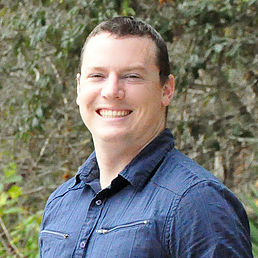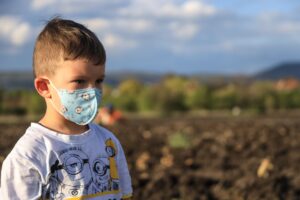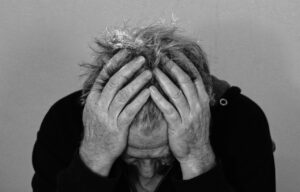Let’s talk about my two favorite coping skills for anxiety and stress.
Anxiety is an issue that many people deal with on a daily basis, and it can significantly hurt our well-being, our mental health, and even our physical health. It’s important to learn how to cope with these problems in our daily life because most people have stressful experiences and situations most days. Learning how to reduce your stress can empower you to do better, be more productive, and spend less time being worried. Two useful techniques for reducing stress and anxiety are deep breathing and progressive muscle relaxation. Let’s examine each of these techniques in detail, provide instructions for each, and see why is it that they work.
Deep Breathing as a coping skill for anxiety.
Deep breathing (also known as belly breathing, abdominal breathing, etc.) is an easy and accessible technique that helps you relax in just a few minutes. To practice deep breathing you need to sit or lie down, put a hand on your belly and another on your chest, and take a slow deep breath. You need to pay attention to how your belly moves under your hand and keep breathing deeply and slowly. A few minutes of this can help you feel much more relaxed.

How does deep breathing help stress?
It can lower your blood pressure, help you stop thinking negative thoughts, and reduce the anxiety you are feeling. You can do this anywhere, and it only takes a few minutes. It can fit into the busiest routine and provide relaxation.
Are deep breathing exercises good for you?
Yes, because they reduce stress, and stress is one of the most damaging influences on our physical and mental health. It can improve our well-being and get our anxiety under control.
Why does deep breathing work?
When we get stressed, our body activates a part of our nervous system that prepares us to respond to danger. This system elevates our blood pressure, makes our breathing shallow, and has other physical effects that are important in the moment but that can be hurtful if the stress continues or if it is too acute. Additionally, our brain is not good at distinguishing between actual danger and a particularly challenging public speaking event. Both can cause a similar reaction.
Deep breathing signals that the danger is passed and “turns off” or suppresses the response the body is having. Deep breathing can help lower your heart rate, your blood pressure, and induce a state of relaxation that is good for you, reducing any anxiety you might feel in the moment. It’s easy to learn and can be mastered with a bit of time and practice.
When you get started, it is generally easier to do deep breathing when you are alone and in a quiet space. Eventually, you learn to do it whenever and wherever, if you practice the technique. When you learn how to find the right rhythm for yourself, you probably won’t need to put your hand on your chest and belly and instead, it will become a much more natural activity.

Progressive Muscle Relaxation (PMR) for Anxiety and Stress
What is the progressive muscle relaxation technique?
PMR is another foundational coping strategy for anxiety. PMR is generally considered a quick relaxation technique that involves tensing and relaxing different muscle groups as you breathe. To use this technique, you need to breathe in as you tense a muscle group hard but not to the point of discomfort for several seconds. As you breathe out, you completely relax the muscle groups. Then, relax for a few seconds, and repeat the same with the next muscle group.
Which muscle groups can we tense and relax this way? Well, any! For the purposes of PMR, muscle groups are going to be any clusters of muscles that work together. Using muscles as clusters helps as you can work your way through the different parts of your body, for instance, the hands, the wrists, the shoulders, the thighs, different groups of facial muscles (for example, the forehead, the mouth, and the nose), neck muscles, and so on.
As you tense and relax parts of your body, pay attention to how they feel when they are tense and when they are relaxed. You want to keep your breathing slow and regular, similar to deep breathing as discussed earlier.
Why does progressive muscle relaxation work?
It is a technique that can relieve stress and anxiety starting with the body. In a way, it forces your body to be relaxed, and your mental state changes with it. You can’t be tense while your body is relaxed. How progressive muscle relaxation works is that it quickly takes you to a relaxed state, so it becomes easier to manage the thoughts and situations that are stressing you out. PMR forces us to mentally disengage from stressors or anxiety because we’re purposefully paying attention to our muscles and breathing.
When to use progressive muscle relaxation?
At first, it’s good to practice PMR during moments of peace and quiet when you are not disturbed. As you become better, however, this can be done anywhere when you need to relax quickly. PMR is also very useful for falling asleep and can be done while you are in bed trying to relax. In general, these relaxation techniques are very easy to do and with a bit of practice, you can learn to do them pretty much anywhere and at any time. They become tools for you to relax and reduce the negative impact stress can have on your daily life.
Overall, it’s important to have simple tools that help you relax. These require no tools and only a few minutes each, and they are highly accessible. Their effectiveness is proven by years of study. Deep breathing and progressive muscle relaxation are excellent techniques that don’t require any money or even that much time or effort to learn and practice.

PMR or Deep Breathing not helping? Do you feel like you would benefit from additional skills and strategies to manage your anxiety, stress, or frustration? Contact us, email, or give us a call to set up an appointment. We’d love to help!
References
- Which Therapy is Best? - December 14, 2023
- How to deal with Burnout when you’re sick of everything and everyone. - February 23, 2022
- The Hidden Dangers of Social Media: How It Can Eat Away at Your Mental Health - August 21, 2021








